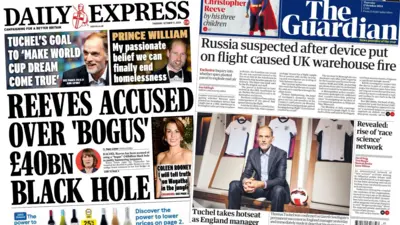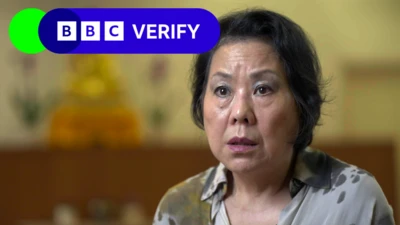We've updated our Privacy and Cookies Policy
We've made some important changes to our Privacy and Cookies Policy and we want you to know what this means for you and your data.
SFO to investigate pension liberation scams
Image source, Getty Images
- Author, Brian Milligan
- Role, Personal Finance reporter
The Serious Fraud Office (SFO) is to investigate a series of pension liberation scams, in which investors have lost at least Β£120m.
Since 2011 it's thought that more than 1,000 people moved their pension savings into schemes such as Capita Oak and Henley Retirement.
They were typically told their money would be used to buy storage pods.
The investors were promised returns of 8% in the first two years, with up to 12% in subsequent years.
Both firms have since been wound up.
The SFO is also investigating the Westminster Pension Scheme and the Trafalgar Multi Asset Fund.
Investors to these schemes were told their money was being put into a variety of other assets, including property loans, as well as investments in Mauritius and Florida.
Many individuals were persuaded by cold-callers to withdraw savings from final-salary schemes, where their money would have been safe, and their returns more generous.
Pension freedoms
The SFO's figures suggest that savers may have lost an average of Β£120,000 each.
It is asking anyone else who believes they may have been a victim of such scams , as there may be many more people who are unaware of their losses.
"The SFO investigation into storage pod investment schemes is a timely reminder that unregulated unusual investments at home or aboard come with a high risk that people could lose all their hard-earned pension and other savings," said Kate Smith, head of pensions at Aegon.
"Savers must be on their guard. Promises of high returns or financial inducements are often scams and people falling for this type of investment scam run the risk of their lifetime's savings being lost in a matter of seconds."
Since April 2015, it has become easier to withdraw money from pension funds, under the then government's so-called "pension freedoms".
The Financial Conduct Authority (FCA) provides.
Top Stories
More to explore
Most read
Content is not available








